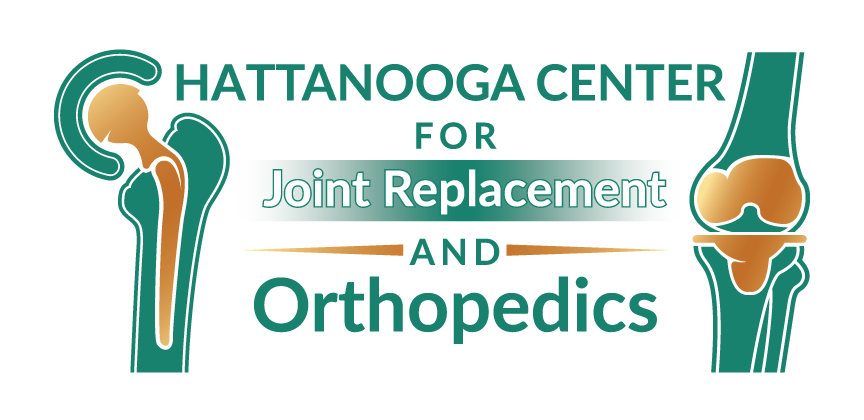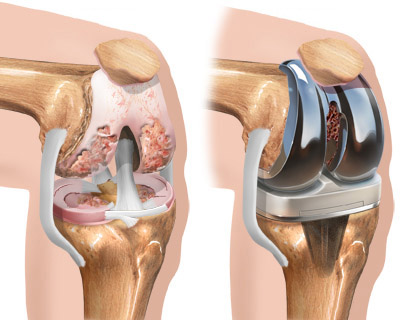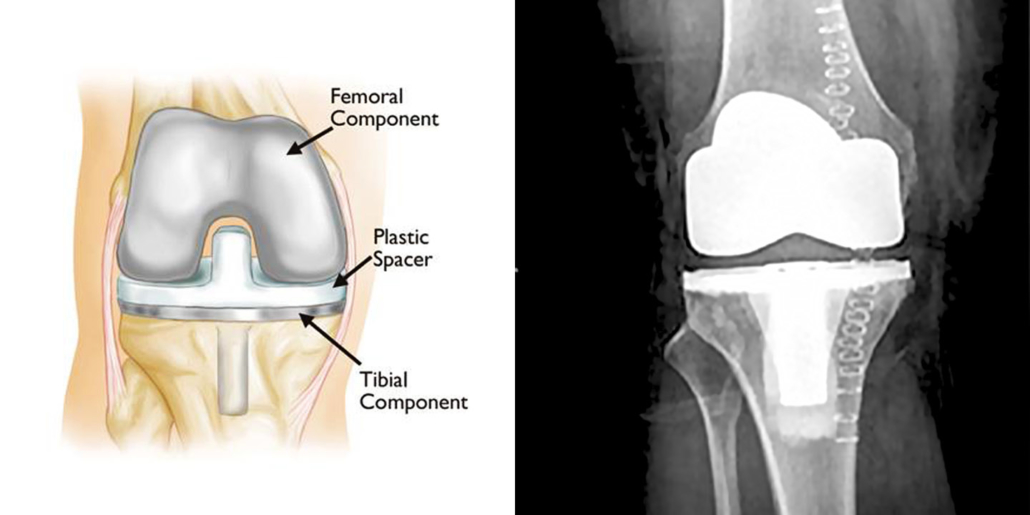Knee Replacement Surgery
Chattanooga Center for Joint Replacement and Orthopedics
Knee Replacement Surgery
If you have knee pain or a knee injury, it doesn’t necessarily mean you need knee replacement surgery. There are a lot of causes for knee pain. These can all be treated successfully with medication, rest, ice, anti-inflammatories, physical therapy, and minor surgery such as arthroscopic surgery.
However, if you have a long-standing history of osteoarthritis or a knee that is “worn out,” it may be the best option to proceed with knee replacement surgery.
Knee replacement surgery has come a long way in the last ten years; it is nothing to be afraid of. Knee replacement surgery is being done as an outpatient procedure, a single overnight stay in the hospital, or even at a surgery center. Pain control has come a long way in the last several years to where the procedure is no longer painful and “dreaded.” People do really well after knee replacement surgery; however, they are expected to participate in physical therapy at least three times a week and do their exercises on a daily basis. Most people are off a walker for two weeks.
Pain control is managed much better and starts off with an adductor nerve block by the anesthesiologist in the hospital on the day of surgery. It is then supplemented with injections during the surgery that lasts at least 24 to 48 hours. The patient can also take over-the-counter anti-inflammatories such as Motrin or Naprosyn to aid in pain control. It may be necessary to take some opioids, but these would be given a lot less than they were years ago. Most people can get back to work somewhere between four to six weeks after knee replacement surgery.
Chattanooga Center for Joint Replacement and Orthopedics
Knee Replacement Surgery
If you have knee pain or have had a knee injury, it doesn’t necessarily mean that you need knee replacement surgery. There are a lot of causes for knee pain. These can all be treated successfully with medication, rest, ice, anti-inflammatories, and physical therapy as well as minor surgery such as arthroscopic surgery.
However, if you have a long-standing history of osteoarthritis or a knee that is “worn out,” it may be the best option to proceed with knee replacement surgery.
Knee replacement surgery has come a long way in the last ten years to the point where it is nothing to be afraid of. Knee replacement surgery is being done as an outpatient procedure or a single overnight stay in the hospital or even a surgery center. The pain control has come a long way in the last several years to where the procedure is no longer painful and “dreaded.” People do real well after knee replacement surgery; however, they are expected to participate in physical therapy at least three times a week and do their exercises on a daily basis. Most people are off a walker by two weeks.
Pain control is managed much better and starts off with an adductor nerve block by the anesthesiologist in the hospital the day of surgery. It is then supplemented with injections during the surgery that last at least 24 to 48 hours. The patient can also take over-the-counter anti-inflammatories such as Motrin or Naprosyn to aid in the pain control. It may be necessary to take some opioids, but these would be given a lot less than they were years ago. Most people can get back to work somewhere between four to six weeks after knee replacement surgery.


